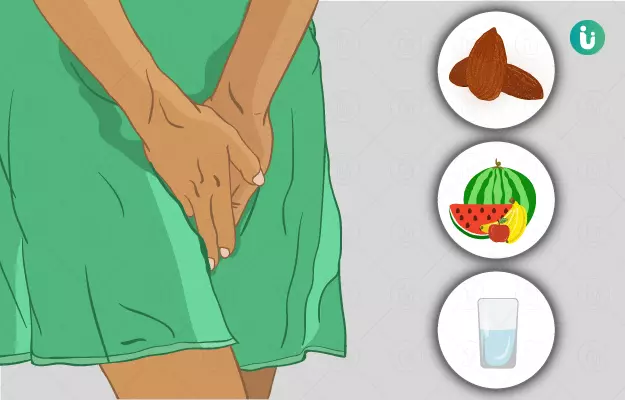You must by now be aware of the kinds of food that you must eat during periods, but you may be wondering if there are any foods you must avoid. Although no specific diet needs to be followed during periods, there are certain foods which can cause worsening of the symptoms of pain during menstruation while others can contribute to bloating. This section will describe a list of all the foods that you must avoid during the menstrual cycle:
High-fat foods
While low-fat foods are listed as a healthy inclusion in the diet during menstruation, the converse is true for the intake of high-fat and unhealthy sources of fats like deep-fried food items and saturated fats and oils. It is a better idea to stir fry or lightly roast your food. High intake of polyunsaturated fatty acids, which are commonly used for frying is also associated with dysmenorrhoea.
Fast foods
Fast foods are loaded with trans fats and researchers have found that the intake of these foods can worsen the symptoms of dysmenorrhoea.
Repeated unhealthy snacking
Frequent snacking causes non-adherence to suggested dietary changes during menstruation. Women often begin taking frequent, unhealthy snacks during the premenstrual phase, which continues into menstruation. Such unhealthy practices must be refrained from to prevent pain and distress during menstruation.
Red meat
While the intake of healthy non-vegetarian foods like eggs and fish is highly recommended, it is suggested to reduce the intake of red meat sources like goat meat, pork, etc. during your periods. Processed meats like bacon and sausages must also be avoided to prevent the symptoms of dysmenorrhoea.
Beans and legumes
Beans and legumes are the richest sources of dietary fibres. An excessive intake of these foods can contribute to excessive gas and bloating, which can add on to your menstrual woes. While increasing fibres, it is always essential to increase your water intake.
(Read more: Home remedies for bloating)
Carbonated beverages
Although it is recommended to increase fluid intake during menstruation, it is important that you stay away from carbonated, fizzy beverages and replace these with water, in order to prevent dysmenorrhoea.
Excessive caffeine, sugar and alcohol
Excessive intake of coffee has also been associated with period pain. So, you must not exceed above 2 to 4 cups each day. You can instead opt for some natural teas like chamomile or green tea, which have a mild pain-relieving effect during periods.
To avoid dysmenorrhoea, the intake of sugary products and alcohol must also be regulated.
Unprescribed herbs
Although some herbs may be helpful in the management of pain and discomfort during the menstrual cycle, it is important that you talk to your doctor and not begin taking any herbs or supplements without your doctor’s consult.



























